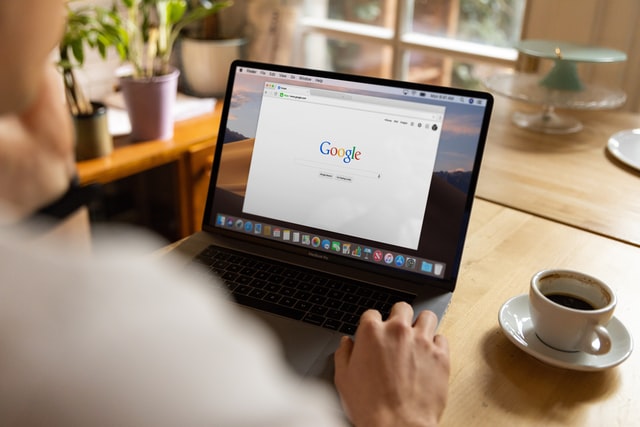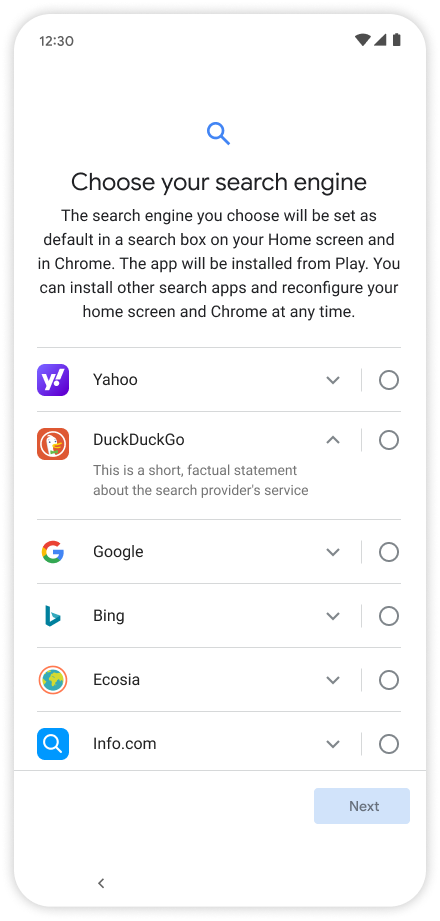
Google’s Free Choice Screen for Android Users: Increased Consumer Choice Trend Continues
Google’s search engine has dominated the market for the better part of two decades. This dominance may (at least in part) be attributed to the company not shying away from anti-competitive tactics – like paying Apple $12 billion in one year to ensure Google is the default search engine on Safari and iPhones. It’s tactics like these that are drawing regulator attention around the globe.
A lot of regulator attention.
Regulator Actions Against Google: A Global Perspective
Last year, the US Department of Justice and 11 state attorneys sued Google to prevent it from maintaining a monopoly through exclusivity agreements, amongst other things. A slew of antitrust suits with bipartisan buy-in followed in the states. (See here and here for details of some of the other state suits against Google).
Then, there was a record breaking €4.34 billion settlement in Europe for the practices that sought to ensure Android users searched using Google, specifically Google:
- has required manufacturers to pre-install the Google Search app and browser app (Chrome), as a condition for licensing Google’s app store (the Play Store);
- made payments to certain large manufacturers and mobile network operators on condition that they exclusively pre-installed the Google Search app on their devices; and
- has prevented manufacturers wishing to pre-install Google apps from selling even a single smart mobile device running on alternative versions of Android that were not approved by Google (so-called “Android forks”).
This settlement is what ultimately led to Google’s Free Choice Screen, that will grant European Android users more choice about their search engines from September 1, 2021.
Background to Google’s Free Choice Screen

Photo by Mitchell Luo on Unsplash
“We know that, in general, setting a default option substantially increases the likelihood that consumers and businesses will stick with that option. This can have the effect of reducing competition and consumer choice in the supply of these services,” ACCC Chair Rod Sims said.
Following the €4.34 settlement, a bidding system was set up for search engines to be viewed alongside Google for Android users. This system required alternative search engines to pay Google for users acquired when users chose a provider other than Google. You can read about it in more detail here.
It didn’t take long for a group of search providers to ask for change. They wrote an Open Letter to the European Commission in October 2020, requesting a trilateral meeting. Following this, and increased regulator pressure on Google, the revised Google Free Choice Screen was implemented.
What is Google’s Free Choice Screen?
The revised Free Choice Screen removes the auction system and, instead, shows up to 12 search providers (including Google) from which Android users can choose when setting up their phone.
The choice screen will consist of a single, continuous, scrollable list of up to twelve eligible general search services, displayed as follows:
- The five most popular eligible general search services in each country according to StatCounter (including Google) will be displayed at the top, ordered randomly each time the choice screen is shown.
- Up to seven remaining eligible general search services will be shown below the initial five services, similarly ordered randomly. In the event there are more than seven remaining general search services in a given country, the seven services to be shown on the choice screen in that country will be selected at random each time the choice screen is displayed.
Eligible general search services will not be charged either for participating in the revised choice screen or when a user selects their services from the choice screen.
In a major win for privacy-conscious consumers, Google has pledged not to collect data from consumers using third-party search providers.
Google’s press release regarding its revised Free Choice Screen is available here.
Australia’s Stance on Google’s Free Choice Screen
The Australian Competition and Consumer Commission (ACCC) followed the European regulatory action, ultimately recommending in its March 2021 Issues Paper:
Google should provide Australian users of Android devices with the same options being rolled out to existing Android users in Europe; that is, the ability to choose their default search engine and default internet browser from a number of options. If Google does not introduce similar options for Australian Android users by six months from the date of the Report, the ACCC will submit to the Government that it should consider compelling Google to offer this choice.
The Australian Competition and Consumer Commission is scheduled to report on its assessment of Google’s rollout of the Free Choice Screen in Australia by 30 September 2021. You can read more about the background to the ACCC’s report here.
What would these changes mean for Australian organisations?
We don’t anticipate that these changes would necessitate sweeping changes to your organisation’s marketing strategy, however, we are starting to see small changes. As users gain greater choice over their search engine, and as more search engines enter the marketplace, you may need to adjust your search engine optimisation and digital marketing strategy. That said, Google has retained more than 85% of the market share for more than a decade, so it will remain a major player in your marketing strategy for the foreseeable future.
It is also worth noting that consumer (and regulator) appetite for choice when it comes to their online data is continuing to grow. While your organisation may not have the same regulatory target on its back that Google does, your users really are concerned about their data. If you haven’t already started implementing data minimisation and privacy by design in your organisation, it’s worthwhile considering doing so.
For assistance in developing a more privacy-conscience approach at your organisation, get in touch.

